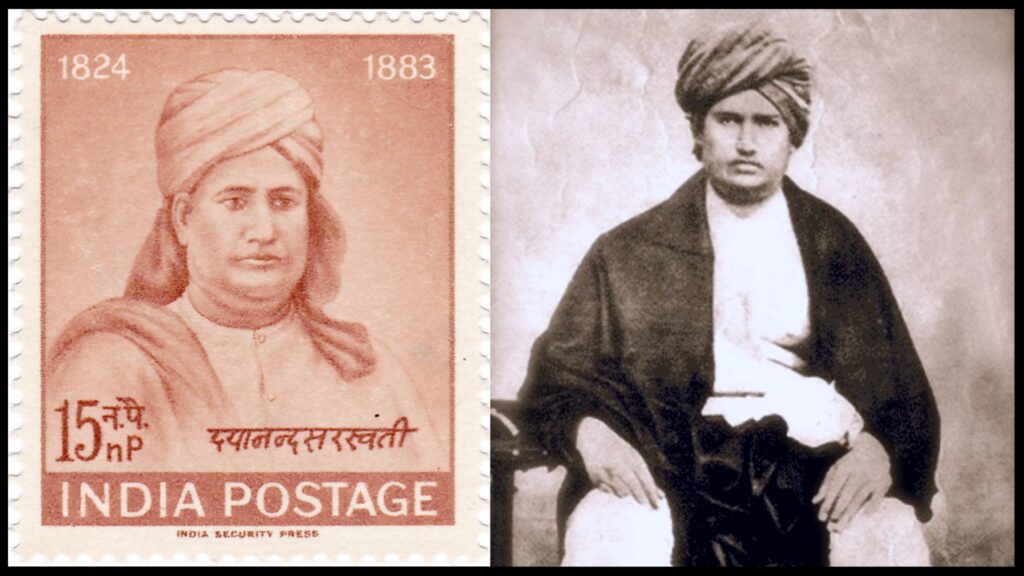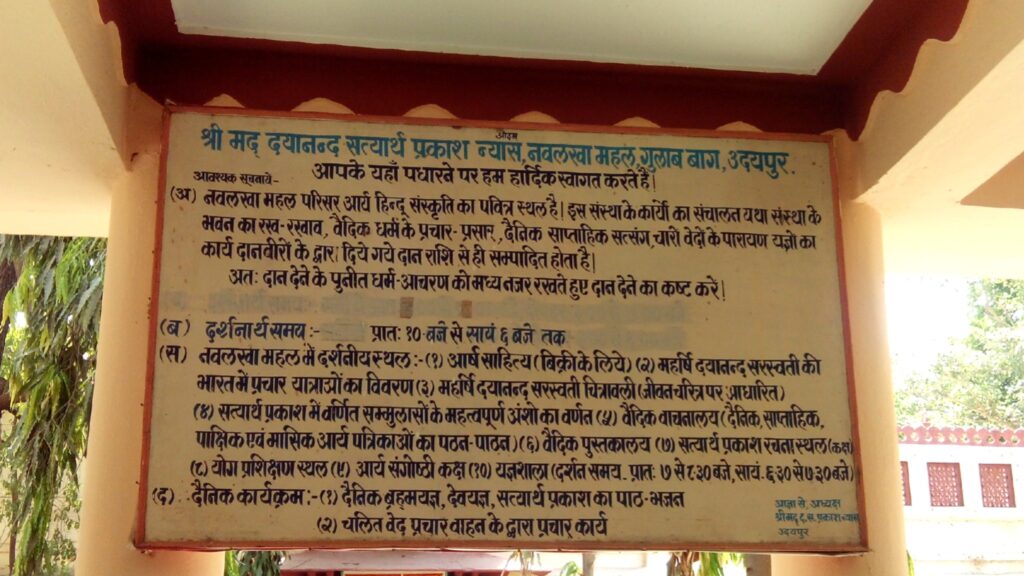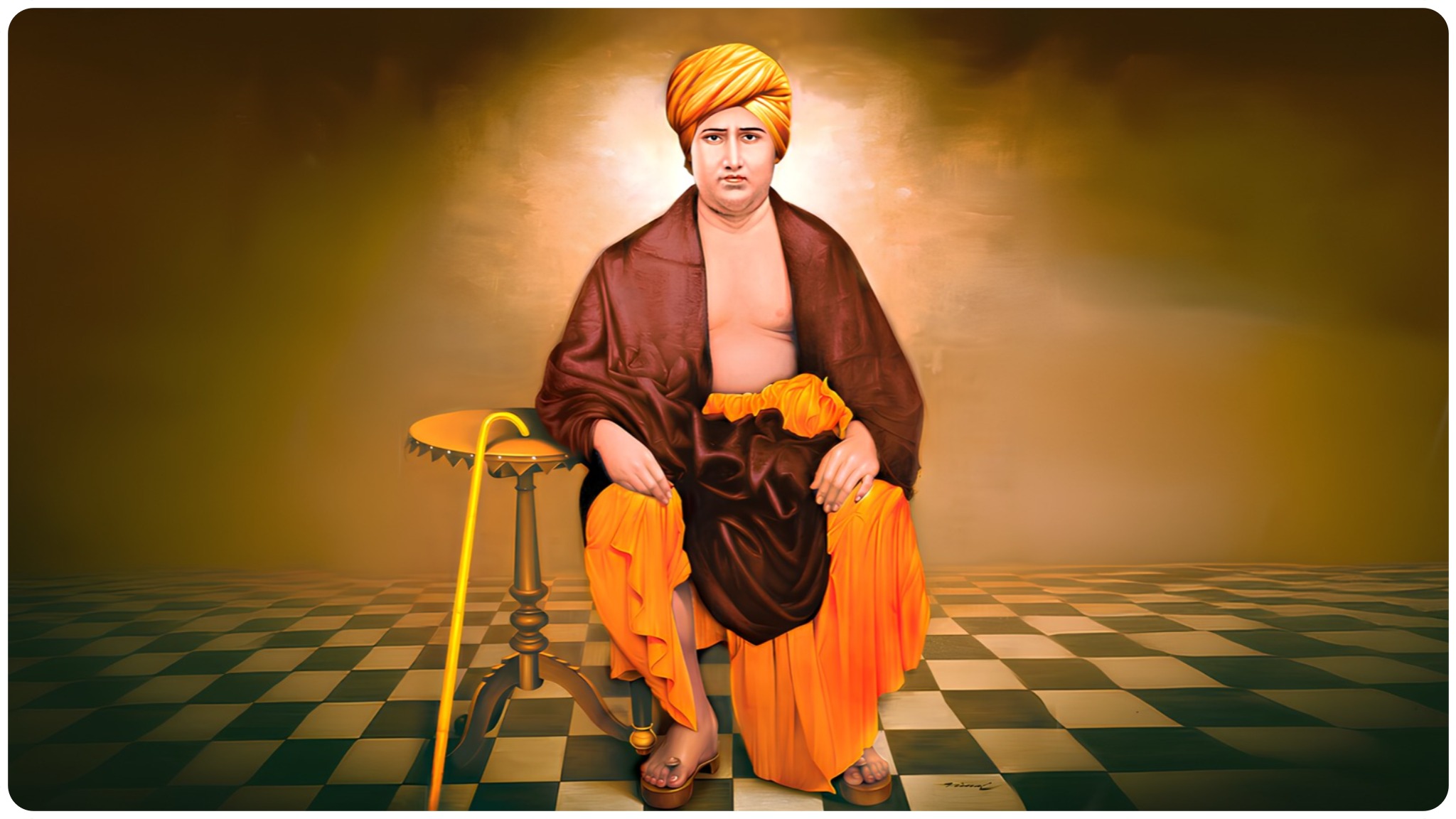Who is Maharshi Dayananda Saraswati?
Dayananda Saraswati Jayanti is celebrated in honor of the birth of Maharshi Dayananda Saraswati, a spiritual teacher, social reformer, and philosopher who laid the foundation for modern Hindu reform. Maharshi Dayananda’s contributions to Hinduism, Indian society, and social equality are monumental.
His teachings continue to inspire millions, promoting values of education, social reform, and a return to the Vedic principles of monotheism and self-realization. This article explores the life, teachings, and significance of Maharshi Dayananda Saraswati, along with the reasons why his Jayanti is celebrated.
The Birth and Early Life:
Maharshi Dayananda Saraswati was born as Mool Shankar on February 12, 1824, in the town of Tankara, Gujarat, India. His family was Brahmin, and he was raised in a traditional Hindu household. As a young boy, Mool Shankar showed an inclination toward spiritual matters, often questioning the religious practices and rituals of his time.
However, he was also a bright student, excelling in academics. Despite his family’s wishes for him to follow a conventional life, Mool Shankar felt a deep calling toward spirituality.
At the age of 14, Mool Shankar left his home to seek a deeper understanding of spirituality. His quest for knowledge took him across India, where he studied under several teachers and ascetics. During his travels, he had a profound realization that many of the practices prevalent in Hindu society, such as idol worship and superstitions, were far removed from the original teachings of the Vedas.
This realization led him to renounce worldly life and adopt the name ‘Dayananda,’ meaning “one who is compassionate to all beings.”

Spiritual Mission:
Maharshi Dayananda Saraswati’s vision was revolutionary for the time. He rejected idol worship and instead advocated for the worship of one formless God.
He based his teachings entirely on the Vedas, ancient scriptures that were regarded as the ultimate authority in Hinduism. Maharshi Dayananda’s interpretation of the Vedas was unique, and he believed that the scriptures had been misinterpreted and distorted over time. His aim was to bring back the original teachings of the Vedas and restore the true spirit of Hinduism.
In 1875, Maharshi Dayananda founded the Arya Samaj in Bombay (now is called Mumbai). The Arya Samaj was a reformist Hindu movement that sought to eliminate social evils such as caste discrimination, untouchability, and the mistreatment of women. The organization promoted the idea of ‘Vedic Dharma,’ a way of life that was in harmony with the principles outlined in the Vedas.
Teachings of Maharshi Dayananda Saraswati
Maharshi Dayananda Saraswati’s teachings have had a lasting impact on Hindu philosophy and social reform. His philosophy was grounded in the belief that the Vedas are the ultimate source of knowledge and truth. He strongly emphasized the following key principles:
- Rejection of Idol Worship
Maharshi Dayananda Saraswati was a staunch critic of idol worship, which he believed had corrupted the original teachings of the Vedas. He argued that the Vedas advocate for the worship of one formless, omnipresent God. His belief in monotheism led him to encourage Hindus to focus on the worship of a single divine entity, beyond material representations.
- Emphasis on Education
Dayananda believed that education was a key element for individual and societal progress. He advocated for universal education, not just for boys but for girls as well. He encouraged the youth to study the Vedas, as well as other fields like science, mathematics, and logic, which he believed would foster rational thinking and personal growth. The Arya Samaj played a significant role in establishing schools and institutions to promote education.
- Women’s Rights and Social Reform
Maharshi Dayananda Saraswati was an early advocate of women’s rights in India. He championed the cause of women’s education and supported widow remarriage, which was a controversial stance at the time. He strongly opposed the practice of Sati (the burning of widows) and infanticide, both of which were prevalent in certain regions of India. His belief in gender equality was ahead of his time and made him a trailblazer in the fight for women’s rights.
- Denunciation of Caste System
One of the most important aspects of Maharshi Dayananda’s teachings was his opposition to the caste system. He condemned the hierarchical structure that divided society into rigid social classes and discriminated against the so-called “lower castes.” He advocated for a society based on equality, where individuals could rise above their caste and engage in social and spiritual pursuits.
- Social and Moral Responsibility
Maharshi Dayananda believed that individuals had a social responsibility to contribute to the welfare of society. He emphasized the importance of moral and ethical living, which could be achieved through following the principles of the Vedas. He encouraged his followers to live righteous lives by practicing truthfulness, compassion, and self-control.

He is Foundation of Arya Samaj
Maharshi Dayananda Saraswati’s Arya Samaj was founded with the aim of revitalizing Hinduism and promoting social reform. The organization focused on the following key objectives:
- Promotion of Vedic Dharma
Arya Samaj aimed to spread the knowledge of the Vedas and encourage people to follow the path outlined by these ancient scriptures. The organization sought to restore the true essence of Hinduism, which had been lost over time due to the influence of various superstitions and blind rituals.
- Abolition of Superstitions
Maharshi Dayananda was vocal in his criticism of practices like idol worship, pilgrimages to temples, and blind rituals. He believed that such practices diverted people from the true essence of spirituality and led to social inequalities.
- Social Reforms
The Arya Samaj played a key role in addressing social issues such as child marriage, caste discrimination, and untouchability. The organization advocated for widow remarriage, women’s rights, and the abolition of untouchability. It also supported the establishment of educational institutions for both boys and girls, and it played a key role in the establishment of several schools and colleges across India.
- Emphasis on Unity and Brotherhood
Maharshi Dayananda’s philosophy emphasized the unity of all people, regardless of their social status, caste, or gender. Arya Samaj was open to all individuals, encouraging them to join the movement for social and spiritual upliftment. The organization sought to foster a sense of brotherhood and solidarity among people from all walks of life.
Significance of Maharshi Dayananda Saraswati Jayanti
Maharshi Dayananda Saraswati Jayanti is an important occasion for his followers and admirers, as it marks the birth of a spiritual giant who dedicated his life to the reformation of society and the upliftment of humanity. The day is celebrated with reverence and respect across India and in several parts of the world. Some of the key aspects of the celebration include:
- Spiritual Discourses
On this day, religious and spiritual discourses are organized to spread awareness of Maharshi Dayananda’s teachings. Scholars and followers gather to reflect on his philosophy and to discuss his contributions to social reform.
- Social and Educational Initiatives
To honor his commitment to education and social welfare, many Arya Samaj centers organize community service activities, such as providing food to the needy, organizing health camps, and supporting educational initiatives for underprivileged children.
- Cultural Programs
Various cultural programs, including music, dance, and drama, are organized to celebrate the life and teachings of Maharshi Dayananda Saraswati. These programs often include performances of Vedic chants, traditional music, and plays that highlight his social and spiritual contributions.
- Reflection and Meditation
Devotees observe a day of reflection and meditation to commemorate the teachings of Maharshi Dayananda. Many engage in spiritual practices, such as chanting mantras and reflecting on the ideals of truth, self-realization, and social responsibility that he propagated.
Conclusion: The Legacy of Maharshi Dayananda Saraswati
Maharshi Dayananda Saraswati was a visionary who sought to reform society, uplift the downtrodden, and return to the true principles of Vedic spirituality. His contributions to Hinduism and social reform are unparalleled, and his legacy continues to inspire individuals to lead lives of integrity, equality, and compassion.
The celebration of Maharshi Dayananda Saraswati Jayanti serves as a reminder of the values that he upheld and the path he charted for a just, enlightened society. His teachings remain relevant today, guiding people toward self-realization, spiritual fulfillment, and the creation of a harmonious, inclusive world.





Leave a Reply